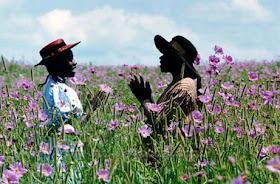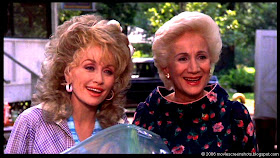 Nurse: These are your Do’s, and these are your Do Not’s. Do broil all your meats. Do drink eight glasses of water a day. Do eat all the fresh green vegetables you want. Do drink two glasses of nonfat milk a day. Do not drink any alcoholic beverages. Do not drink soda pop. Do not drink –ades or punches. Do not eat butter, margarine, oils, lard, or fat of any kind. Do not eat fried foods. Do not eat bread. Do not eat bananas, grapes, watermelon, or any fruits other than grapefruit or cantaloupe. Do not eat canned fruits. Do not eat dried fruits. Do not eat noodles. Do not eat spaghetti or macaroni of any kind. Do not eat pizza. Do not eat popcorn, potato chips, or pretzels. Do not eat puddings or custards. Do not eat ice cream, frozen custard, or frozen yogurt. Do not eat cookies, pies, cakes, pancakes, waffles, or any baked goods. Do not eat chocolate, caramel, fudge, nougat, nuts. Do not eat syrup….
Nurse: These are your Do’s, and these are your Do Not’s. Do broil all your meats. Do drink eight glasses of water a day. Do eat all the fresh green vegetables you want. Do drink two glasses of nonfat milk a day. Do not drink any alcoholic beverages. Do not drink soda pop. Do not drink –ades or punches. Do not eat butter, margarine, oils, lard, or fat of any kind. Do not eat fried foods. Do not eat bread. Do not eat bananas, grapes, watermelon, or any fruits other than grapefruit or cantaloupe. Do not eat canned fruits. Do not eat dried fruits. Do not eat noodles. Do not eat spaghetti or macaroni of any kind. Do not eat pizza. Do not eat popcorn, potato chips, or pretzels. Do not eat puddings or custards. Do not eat ice cream, frozen custard, or frozen yogurt. Do not eat cookies, pies, cakes, pancakes, waffles, or any baked goods. Do not eat chocolate, caramel, fudge, nougat, nuts. Do not eat syrup…. Considered to be ahead of its time in terms of understanding the emotional lives of overweight persons, Fatso is a somewhat melancholy film showing how difficult it is to change one’s eating lifestyle. After his cousin Sal dies from obesity, Dominick (DeLuise) joins Chubby Checkers to lose weight, entrusting the keys to the kitchen cabinets and refrigerator to his baby brother, Frankie (Carey). However, becoming ravenous in the middle of the night, Dominick threatens Frankie with a butcher knife in order to get the keys back; Frankie calls Dominick’s Chubby Checkers buddies to help Dominick through his crisis; but Dominick and his Chubby supporters just end up talking about their favorite foods and how good it feels to eat. Suddenly losing control, they rip the doors off the cabinets, then gorge themselves on spaghetti with tomato sauce, lasagna, pizza, bread, more pasta, ice cream, donuts, chocolate cake, chocolate-covered graham crackers, bran cereal, and more. In the end, Dominick never does become a thin person; though his burgeoning relationship with Lydia (Azzara) takes his mind off eating and he does lose a little poundage, he eventually realizes, “When I eat, I’m me” and learns to love who he is, even if he is a little fat.
Considered to be ahead of its time in terms of understanding the emotional lives of overweight persons, Fatso is a somewhat melancholy film showing how difficult it is to change one’s eating lifestyle. After his cousin Sal dies from obesity, Dominick (DeLuise) joins Chubby Checkers to lose weight, entrusting the keys to the kitchen cabinets and refrigerator to his baby brother, Frankie (Carey). However, becoming ravenous in the middle of the night, Dominick threatens Frankie with a butcher knife in order to get the keys back; Frankie calls Dominick’s Chubby Checkers buddies to help Dominick through his crisis; but Dominick and his Chubby supporters just end up talking about their favorite foods and how good it feels to eat. Suddenly losing control, they rip the doors off the cabinets, then gorge themselves on spaghetti with tomato sauce, lasagna, pizza, bread, more pasta, ice cream, donuts, chocolate cake, chocolate-covered graham crackers, bran cereal, and more. In the end, Dominick never does become a thin person; though his burgeoning relationship with Lydia (Azzara) takes his mind off eating and he does lose a little poundage, he eventually realizes, “When I eat, I’m me” and learns to love who he is, even if he is a little fat. Dominick: He was like a mother to me. He always had something on him to eat.
Dominick: He was like a mother to me. He always had something on him to eat.Antoinette (to Dominick, who has just delivered part of his nephew Anthony’s birthday cake): You ate the “ony”!
Dominick: God, why do they want me to be skinny? I’m not so bad as I am. Am I?
Dominick: You know something, Junior? You don’t know how to run your plate. You’re thirty-two years old, you don’t know how to run your plate. The omelet is supposed to come out even with the bread.
Frankie: I told you I don’t want all that bread. You made me too much bread. You always make me too much bread.
Dominick: And you don’t even dip your bread. I made the omelet nice and soft in the middle so you could dip your bread (dipping the bread in Frankie’s eggs).
Frankie: Get out of my eggs.
Dominick: A little bit of hot pepper on it.
Frankie: Will you stop putting hot pepper on my eggs!
Dominick: You don’t even butter your bread. Look, no jelly? Here, this nice jelly Zi Marie made: apricot and pineapple. Oh, nice, here.
Frankie: I told you, I don’t want that much bread. Don’t you understand? I’ve been telling you that for a hundred years. You love bread. I don’t love bread. I like bread. Don’t you understand I gotta watch my weight?
 Dominick: Dinner. Lasagna for you. Broiled chicken and kale and nonfat milk for me. No bread. Come on. Eat. Jesus, Mary, and Joseph, help me.
Dominick: Dinner. Lasagna for you. Broiled chicken and kale and nonfat milk for me. No bread. Come on. Eat. Jesus, Mary, and Joseph, help me.Frankie: … Great lasagna. How’s your kale?
Dominick: Thrilling. Thrilling. Want some bread? One piece. (placing it next to Frankie’s plate) In case you change your mind.
































